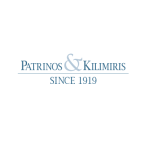One of the most radical changes introduced by the new Greek Trademark Law, effective since March 20 2020, is that the decisions of the Trademarks Administrative Commission handed down in cancellation action proceedings, either on grounds of invalidity or non-use, can be appealed before the specialised IP Single Bench Court of First Instance in Athens. Under the previous law, it was the Administrative Court of First Instance in Athens that ruled on appeal in these cases.
This is certainly good news in several respects, bearing in mind that these appeals are expected to be decided faster and by a specialised IP court. It would be a further step forward, if the Greek legislature decides in the near future the same should apply in relation to appeals filed in the context of opposition proceedings as well.
However, there is nevertheless an issue regarding those cases falling within the period of time that may be characterised as transitional. For example, in cases, where the decision of the Trademarks Administrative Commission was handed down before March 20 2020 and the deadline for filing an appeal lapses at a date after March 20 2020, it is uncertain which court has jurisdiction to rule upon an appeal that may be filed against the decision.
The new Greek Trademark Law is unfortunately not clear on that. In legal theory, there might be a view that the IP Single Bench Court of First Instance in Athens has jurisdiction to rule upon all appeals that were filed on/after March 20 2020. Another point of view is that the decisive point should not be the date of the appeal's filing but the date when the cancellation action concerned was filed instead.
This is a matter that will be tackled in the near future, as both the above-mentioned courts of law will inevitably be called on to deal with this unnecessarily tricky question.












